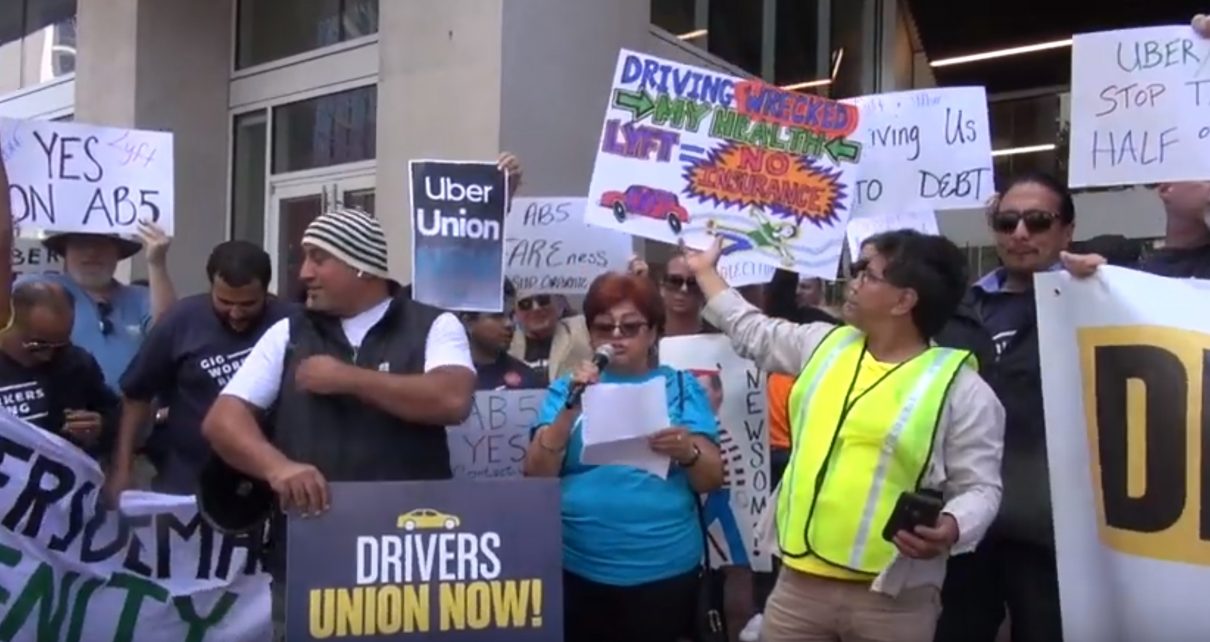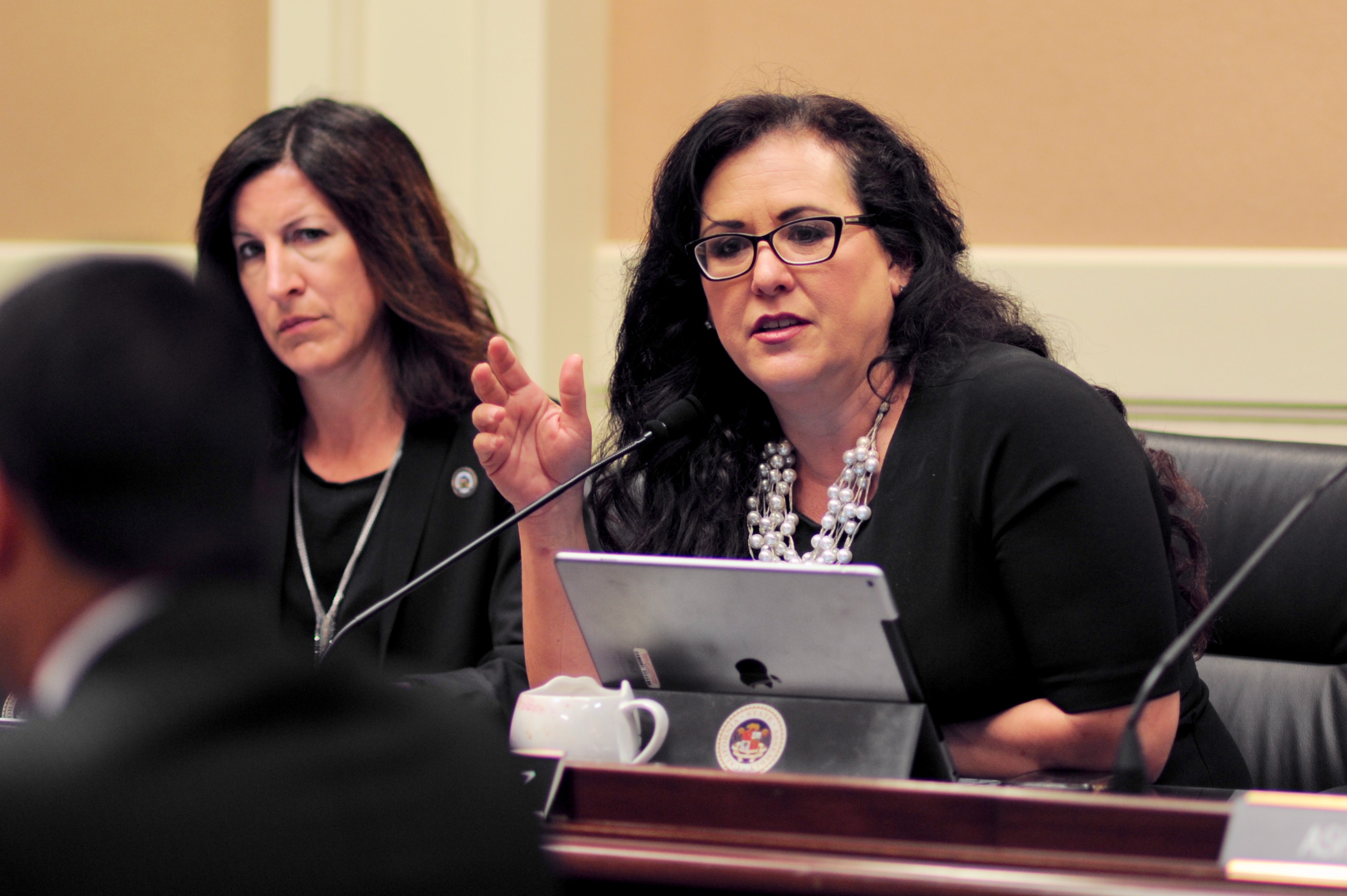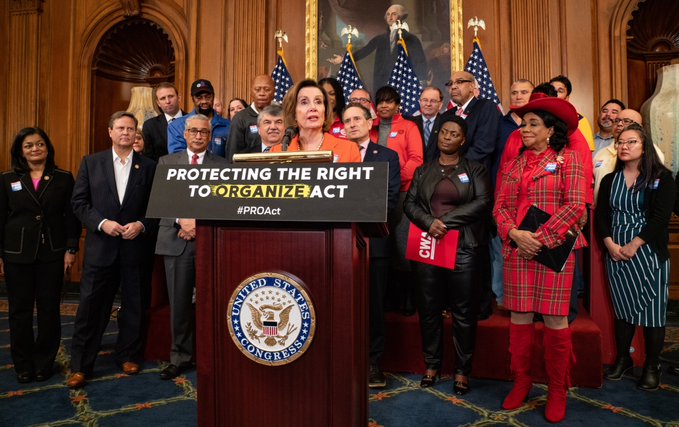
An August AB 5 Rally in San Francisco in. (Youtube)
How AB 5 Is Already Affecting The Gig Economy
Even with promised exemptions, AB 5 is already spreading havoc across many industries
By Evan Symon, October 1, 2019 12:27 pm
Earlier this month, the Globe took a look at AB 5 and how it could ruin the gig economy. Lawmakers like Lorena Gonzalez (D-San Diego) said this would not happen. They specifically pointed out that by listing those people as employees, it would help gain workers rights. However, an initial look at a few industries shows that they’ll be in for a rough time in 2020, when the law is due to come into effect.

Some industries are exempt, most notably the healthcare industry and interpreters/translators. But many small business owners were not, and literally begged lawmakers not to vote for AB 5. It was the same story for many contractors and freelancers, who among other reasons, need the flexibility of days and hours to help care for children, disabled relatives, or elderly relatives.
2.8 million of these contractors nationwide are in personal services, like barbers, hairdressers and beauticians. Alexia Volkova is one such hairdresser working under a contract position in San Francisco. But come 2020, it may not be the same.
“Life will become much harder then,” said Alexia. “It’s not set in stone, but we’re looking at fewer hours next year. As a contractor now, we decide what works best for us, when we can work, and how it gets done. We can even come in for an hour for a special customer.
Under [AB 5] we are screwed. I need to decide between college and daycare next year because of how the hours will be set up. My less hours [sic].”
Similarly, an exotic dancer who contacted the Globe noted that “Strippers like me were initially happy about this. We laughed at how Stormy Daniels portrayed AB 5 in this article she wrote. [LA Times Op-Ed, “Strippers need to be treated as freelancers, not employees”.]
“We’ve been screwed over by bosses over so much money before it wasn’t even funny. But last week, we had a sit down with the club’s owner, and it was everything she said coming true. We have a bit more say, but now hours are being more set. We’re locked in at certain times. It’s all ‘Accept this or get the freak out.’”
“Most of us have kids or are going to school. Why do you think we do this? But this, this would screw it up.”
Another hard hit area is the writing and journalism industries.
Mike Roselier and Sophia V. are two Los Angeles-based writers who rely on income from websites and smaller publications on a freelance basis, and they’re seeing it hit their outlets already.
“Last week I got e-mail from two of the places I write,” Mike told the Globe. “They both said that the maximum number of articles I can write next year, while in California, is 35. I had a weekly piece at one, and the other I wrote for two or three times a week. It’s $100 or $50 per article, but it adds up. Now I’m down hundreds next year so far.”
Sophia gave a similar story.
“I’m on a freelance basis,” said Sophia, “but I’m what is known as a perma-lancer. It’s like a regular in a freelance position with more duties. Between freelancer and on staff.”
“Under these new regulations that’s been destroyed next year. I have to write fewer articles and the hours I was getting editing other people’s work will be cut down now too with fewer freelancer articles coming in. I’m going to need a second job now.”
“The crazy thing was that I was originally for this. You know, this would help everyone. You know, hiring someone as an employee, giving them rights. It sounded great.”
“This is the reality. It helps some, but it leaves a lot of people, like me, a mother of two who needs this kind of flexibility, in the dust.”
Mike also gave insight into how some places will be setting new article limits for freelancers. “They literally told me they’re going to let me know which weeks I can write something. I mean, it’s not ‘write when you want’ anymore, which was the main appeal. Thousands of us are now screwed.”
Even worse is the crunch many are expecting to get into.
“Freelance work doesn’t get you into the EDD system, meaning you don’t qualify for Unemployment. Those extra jobs, over the 35 limit, that becomes our gap spending in case of down times.
“Under AB 5 we can’t have either, because we’ll be writing fewer, and the freelance jobs where I would pay into EDD are way fewer too.
“We’re screwed.”
With AB 5 only 3 months away from being in effect, hundreds of thousands of freelancers across California are growing more and more worried over the negative side effects that many lawmakers had either ignored or promised that they wouldn’t happen.
- Bill to Require Law Enforcement Disclosure if AI Was Used To Help Write Reports - August 7, 2025
- Gov. Newsom Files FOIA Request To ‘Expose True Cost’ Of L.A. Federal Troop Deployment for Anti-ICE Riots - August 6, 2025
- California Redistricting: How Newsom’s Plan Will Demolish Hard Fought GOP Gains - August 6, 2025





One thought on “How AB 5 Is Already Affecting The Gig Economy”